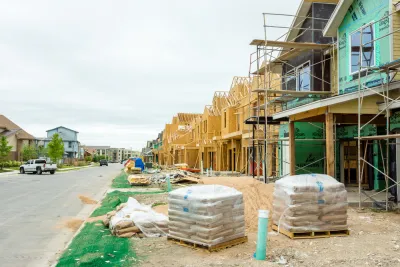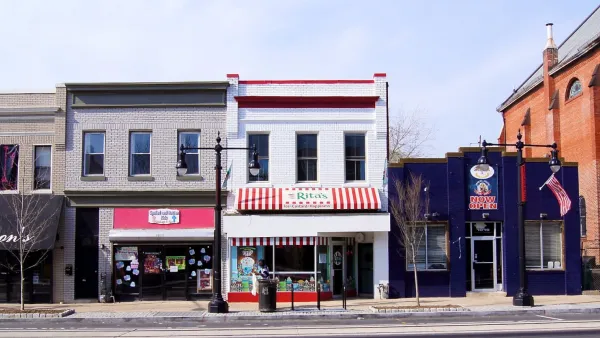The lessons of the 2008 housing market crash don't necessarily apply to the current situation.

Jeff Andrews writes on the housing market context into which the pandemic has emerged:
Historically low inventory and rock-bottom mortgage rates would normally set the stage for a highly competitive homebuying season. While recessions normally have only a minor effect on the housing market, the coronavirus is making life and markets anything but normal.
Citing a literature review by Zillow published earlier in March, the history of past pandemics suggest that the pandemic will have the effect of freezing the housing market. To put it bluntly: prices don’t drop when no one is buying houses.
Andrews also notes that the moratorium on foreclosures, announced by President Trump last week for mortgages backed by Freddie Mac, Fannie Mae, and the Federal Housing Administration (FHA), will help in preventing the bottom from falling out on the real estate market like it did in 2008.
Among the other concerns mentioned by Andrews in the article are the supply chains for the housing construction industry, which could be interrupted by the coronavirus and thus delay a recovery in the sector. A decline in housing production would, according to Andrews, exacerbate the housing shortages that existed before the coronavirus struck.
Perhaps the one clear takeaway from this article is how different the current situation is from the housing crash of the Great Recession. Andres explains:
It’s hard to forget the recent history, but while the 2008 financial crisis saw both the housing and stock markets drop in tandem, this was an aberration in so many ways; the housing market crash was ultimately the cause of the stock market crash. Typically the housing market isn’t tied to swings in the stock market, because people don’t buy houses purely as an investment. Housing is a basic need, and the decision to buy one is usually prompted by entering a new stage of life.
FULL STORY: How coronavirus is impacting the housing market

Analysis: Cybertruck Fatality Rate Far Exceeds That of Ford Pinto
The Tesla Cybertruck was recalled seven times last year.

National Parks Layoffs Will Cause Communities to Lose Billions
Thousands of essential park workers were laid off this week, just before the busy spring break season.

Retro-silient?: America’s First “Eco-burb,” The Woodlands Turns 50
A master-planned community north of Houston offers lessons on green infrastructure and resilient design, but falls short of its founder’s lofty affordability and walkability goals.

Test News Post 1
This is a summary

Analysis: Cybertruck Fatality Rate Far Exceeds That of Ford Pinto
The Tesla Cybertruck was recalled seven times last year.

Test News Headline 46
Test for the image on the front page.
Urban Design for Planners 1: Software Tools
This six-course series explores essential urban design concepts using open source software and equips planners with the tools they need to participate fully in the urban design process.
Planning for Universal Design
Learn the tools for implementing Universal Design in planning regulations.
EMC Planning Group, Inc.
Planetizen
Planetizen
Mpact (formerly Rail~Volution)
Great Falls Development Authority, Inc.
HUDs Office of Policy Development and Research
NYU Wagner Graduate School of Public Service




























